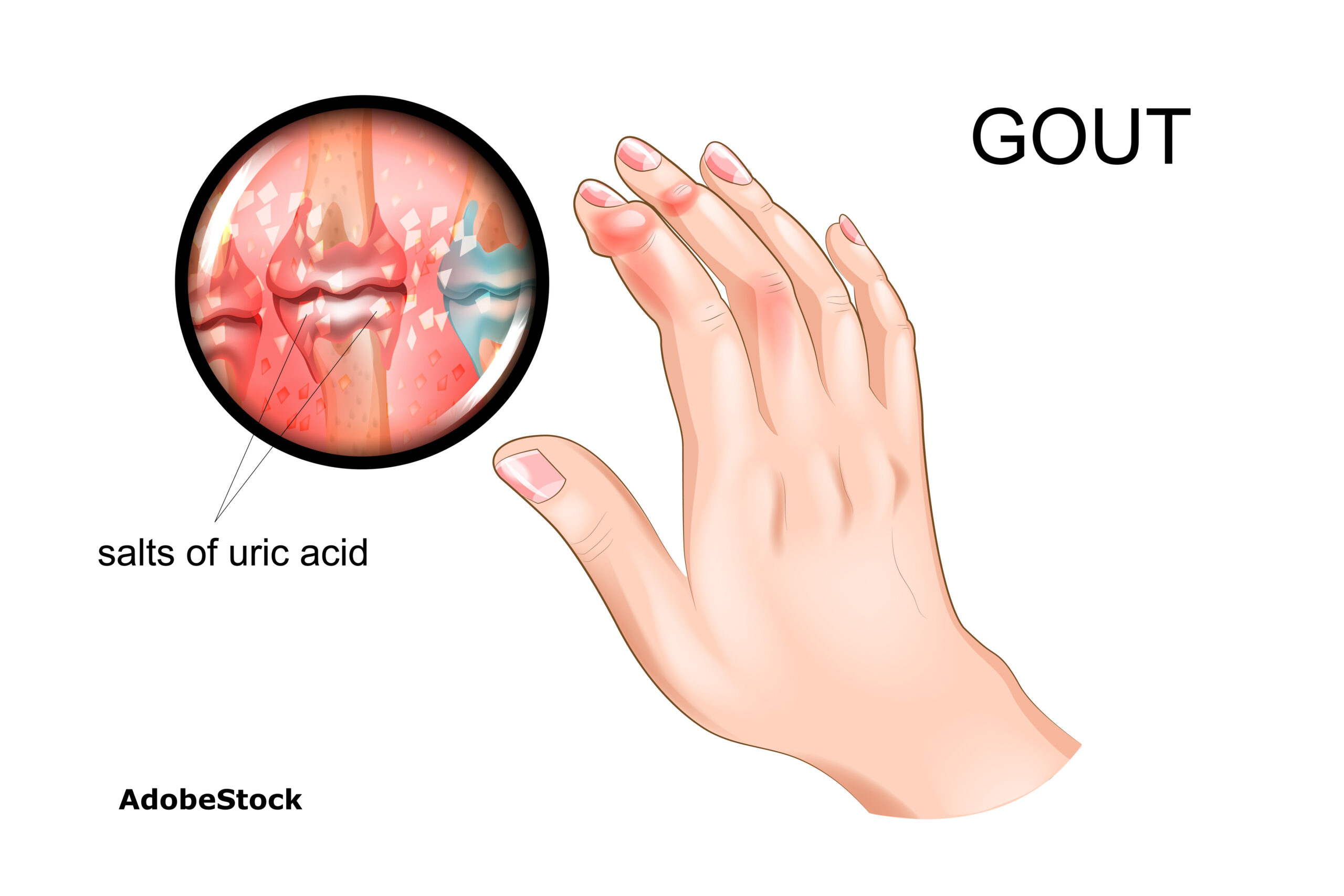In a new-patient consultation for joint pain, you see a 75-year-old man with a history of dementia, stage 3a chronic kidney disease (CKD) and nephrolithiasis. He has a uric acid level of 7.5 mg/dL. His medication list includes 300 mg daily allopurinol. What is NOT an indication for allopurinol? CKD-FIX Elevated serum urate levels are…

Top Research in Gout from ACR Convergence 2024 at a Glance
Dr. Lisa Stamp helps filter the noise to get to the key insights from the research abstracts on gout presented at ACR Convergence 2024.
Better Education on Gout
Experts addressed how education and follow-up for patients with gout can improve disease management and highlighted the need for a better construction of gout remission.

Lubricin/CD44/PP2A Pathway Offers New Therapeutic Targets for Patients with Gout
Dr. Khaled Elsaid discussed synovial macrophages/monocytes and monosodium urate crystal interactions at a session during ACR Convergence, exploring potential new gout pharmacology targets via the lubricin/CD44/protein phosphatase 2A (PP2A) pathway.

Progress in Gout Education & Remission
An ACR Convergence 2024 session will discuss strategies to educate patients about their disease and review the progress toward the concept of remission in gout to better guide physicians.

Novel Mechanisms of Gout Explored
In a session at ACR Convergence 2024, expert panelists with go into depth concerning molecular mechanisms that contribute to gout pathogenesis.

Your Gout Guide for ACR Convergence 2024: Dr. Lisa Stamp
Lisa Stamp, MBChB, PhD, is here to help the busy clinician by curating a collection of the most significant and notable abstracts in gout research to be presented at ACR Convergence 2024.

3 AC&R Study Summaries: Frailty & Prefrailty in RA, Premature Mortality in Gout & Using Recruitment & Multidisciplinary Care Incentives to Improve Access
Frailty & Prefrailty in Patients with RA TNF-α inhibitors associated with higher infection risk By Namrata Singh, MD, MSCI, Katherine D. Wysham, MD, James S. Andrews, MD, & Una E. Makris, MD Why was this study done? Frailty and prefrailty are more common and occur at a younger age in patients with rheumatoid arthritis (RA)…

Gout & Its Comorbidities
At ACR Convergence 2023, experts addressed important topics in gout research, including treating and preventing gout flares, lowering urate levels and managing comorbidities, as well as racial inequities in gout treatment, disease burden and outcomes.

Old Disease, New Tricks: A Novel Approach to Understanding Gout
SAN DIEGO—Gout has sometimes been called the disease of kings, not only because of the fact that purine-rich foods were long affordable only to wealthier individuals, but also because the disease has been around since the monarchies that existed centuries ago. However, with groundbreaking research leading to a better understanding of gout, we can now…
- « Previous Page
- 1
- 2
- 3
- 4
- …
- 22
- Next Page »